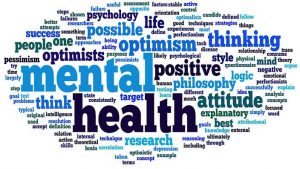
In the previous issue of Pathfinder International, Editor, Mal Robinson spoke with former RAF Psychiatrist and Head of the Smart TMS Clinic, Dr Leigh Neal. In the interview they spoke about the emerging use of TMS as an alternative treatment to PTSD and associated mental health illnesses. We conclude this issue with the second part of the interview, which sees Dr Neal go further in depth on PTSD.
In the previous issue, I was fascinated to discover that the various types of war the UK’s Armed Forces have encountered over the years, have delivered their own unique PTSD DNA, pertinent to that episode of conflict. Doctor Neal explained further still the varying effects of war.
“The 2003 war in Iraq saw the admittance of patients saw PTSD rates of 4%. The continuing fighting with the insurgents in the years following, saw an increase in rates of PTSD, with the conflict becoming more severe and the usage of roadside bombs on the rise.
There was a mirror image for Afghanistan too, with the 2001 invasion of the country, seemingly not unearthing many cases , yet this soon rose again with conflicts with the Taliban.”
It is widely known that the hand to hand fighting, and close quarter battles in both Iraq and Afghanistan saw many dirty tactics from the enemy, including the use of children to cause casualties to allied forces and in effect, everyone in the conflict region became a threat, this as we know with many cases of PTSD has been carried back into society. Dr Neal points out though, other wars have proven to create other effects on serving personnel.
“Bosnia was very brutal and the uncovering of mass war graves and the constant effects of body handling by the troops and it does cause varying effects.”
And what of the PTSD stereotype in general?
“Sadly PTSD has been vastly over inflated, which has overshadowed other problems such as anxiety and depression. The TMS treatment has been known to treat a lot of these conditions including alcohol addiction, anxiety and drug abuse. The use of TMS for PTSD is usually required when other methods of treating the condition, including CBT have been tried.”
Transcranial Magnetic Stimulation (TMS) is a technological breakthrough in medical and psychiatric treatment.
The treatment utilises pulses of magnetic energy, to stimulate or dampen down areas of the brain known to contribute to the medical or psychiatric conditions. TMS has been approved by NICE (2015) as an effective and safe treatment in the UK for the treatment of Depression.
Dr Neal is registered as a specialist by the GMC and has a license to practice. He was first appointed as a Consultant Psychiatrist in 1994. He was formerly an RAF Psychiatrist, Armed Forces Tutor for the Royal College of Psychiatrists and latterly the Hospital Commander of the Armed Forces Psychiatric Hospital. He has a Research Doctorate (MD) in psychiatry and was appointed as an Honorary Senior Lecturer in Psychiatry at Leeds University and at Kings College University, London. He is a member of the International Neuro-modulation Society. He now works in the independent sector and has particular expertise in the treatment of chronic depression, addictions, PTSD and chronic pain. He trained in TMS at Maastricht University as well as various clinics in Southern California; and has been certified in the safe use of repetitive transcranial magnetic stimulation (rTMS) by Maastricht University.
Dr Neal is responsible for the day to day running of the Smart TMS Clinic. https://www.smarttms.co.uk/